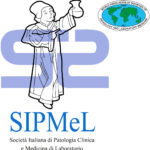
Do not require anti-Thyroperoxidase (AbTPO) and anti-Thyroglobulin (AbTg) antibodies together in suspected autoimmune thyroiditis, only AbTPO.
Prevailing clinical and laboratory literature and authoritative guidelines state that AbTg are less useful than AbTPO and are rarely present without AbTPO. The presence of AbTPO associated or not with AbTg confirms the diagnosis of Auto-Immune Thyroiditis (AHI) but repeat determinations has no prognostic value once the diagnosis is reached. AbTg may be required in the presence of a clinic highly suggestive of AHI and absence of AbTPO. According to NICE and the British Thyroid Foundation, when the General Practitioner refers the patient to the paediatrician, AbTPO may be measured again in cases where the cause of the thyroid dysfunction has not been established. In geographical areas with high iodine intake such as Japan, the increase in AbTg is more frequent than that of AbTPO in the general population and in AHI.
Sources
1. ACB, BTA and BT. UK guidelines for the use of thyroid function tests (2006):https://www.british-thyroid-association.org/sandbox/bta2016/uk_guidelines_ for_the_use_of_ thyroidfunction_tests.pdf (last accessed March 2024).
2. Garber JR, Cobin R, Gharib H, et al. Clinical practice guidelines for hypothyroidism in adults: Endocr Pract 2012;18:988-1028. DOI: 10.4158/EP12280.GL.
3. Thyroid disease: assessment and management. London: National Institute for Health and Care Excellence (NICE); 2019 Nov 20. https://www.nice.org. uk/guidance/ng145 (last accessed March 2024).].
4. Sinclair D Clinical and laboratory aspects of thyroid autoantibodies. Ann Clin Biochem 2006; 13: 173-83. DOI:10.1258/000456306776865043.
5. Nishihara E, Amino N, Kudo T, et al. Comparison of thyroglobulin and thyroid peroxidase antibodies measured by five different kits in autoimmune thyroid diseases. Endocr J 2017; 64:955-61. DOI: 10.1507/endocrj.EJ17-0164.
Download
PDFAttention. Please note that these items are provided only for information and are not intended as a substitute for consultation with a clinician. Patients with any specific questions about the items on this list or their individual situation should consult their clinician.


Recent Comments